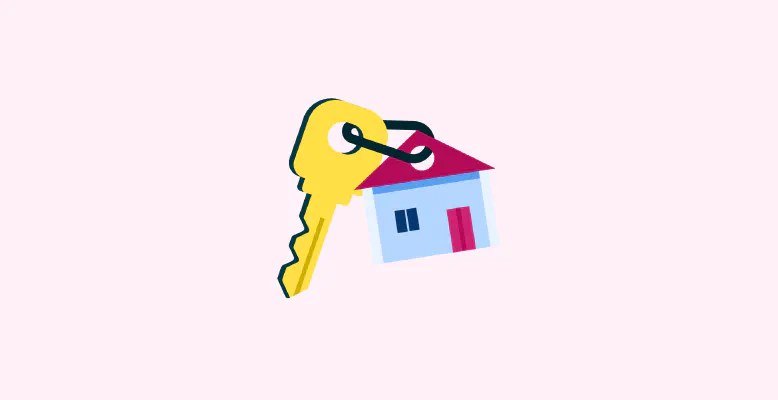Buying a house to rent out is a very popular way to build passive income and benefit from long-term increases in the housing market. In this article, we look at the most important advantages of investing directly in a rental property.
Here you can find our complete guide on how to buy and rent out a house or even how to invest in real estate with small amounts.
Passive income from rent
Every month you receive rent from the residents in your investment property. This income is a perfect way to build passive income: a fixed amount deposited into your account each month. Although there are risks such as vacancy (a period without tenants) or tenants who do not pay, rental income is generally quite stable and predictable.
Before purchasing a rental property, it is advisable to calculate the expected direct return from your rental income. You do this by deducting all costs such as insurance, taxes, mortgage interest payments, repairs, ground lease, etc., from the annual rent. You then divide this annual net rental income by your investment in the property to obtain the direct return. Ideally, you want to be somewhere between 3-4%.
Development of the housing market
Besides rental income, you also benefit from potential increases in the housing market in the long term. These are impossible to estimate exactly because nobody knows what the future holds.
Let’s look at the historical development in the Dutch housing market: In 1949, the average price of a home was €9,199, and today it is €387,000. If you calculate this, it comes down to an average increase of 5.4% per year. We can therefore state that real estate increases in value over the long term. Here you can find more info about the current housing market and the forecast.
By partially financing a property with a buy-to-let mortgage, you can increase the potential appreciation thanks to the leverage effect.
Buy-to-let mortgage increases your return
The mortgage on your investment property provides leverage because you need to bring in less equity. As a result, the same profits are now realized with less personal capital, giving you a higher return.
Small example: Suppose you buy an apartment for €400K with €100K equity and a €300K mortgage. If the property increases in value by 5% the following year, it is worth €420K, and the equity is €120K (Value minus the mortgage). You have thus made a €20K profit on your initial investment of €100K, resulting in a return of 20% (better than the 5% if you had purchased the property without a mortgage).
More stability
If you invest in the stock market, you probably know what volatility is: stock prices can vary greatly from day to day, with days of high increases (+10%) but also days of sharp declines (-10%). Over the long term, the stock market does go up, but this rollercoaster feeling can be quite exhausting if you follow your portfolio regularly, and it also means more risk.
Real estate has much lower volatility and consequently brings more stability to your portfolio and perhaps also reduces the number of sleepless nights worrying about drops in your portfolio.
Inflation hedge
Of all types of investments, real estate is the most correlated with inflation. So when prices rise due to inflation, the value of a home and the rent price often rise as well. Most rental contracts stipulate an increase in rent to follow inflation, causing your rental income to move upwards and offering protection against inflation.
Accessible investing in an investment property
You can get started yourself and purchase your first investment property entirely on your own. However, it’s not as easy and accessible as investing in stocks. It can require a lot of time and effort, and in most cases, you need a significant amount of money.
